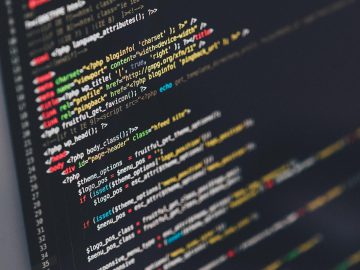Due diligence is required to gain benefits, safeguard data
Is artificial intelligence the new and not-so-secret weapon for businesses? Perhaps. What if a company is short on staff and constantly inundated with customer requests? An AI chatbot could help it field queries without additional personnel costs.
Consider a small marketing team that needs a straightforward e-newsletter graphic but lacks the bandwidth to design one. In seconds, ChatGPT could deliver a file. Or think of increasingly remote workplaces where task-management software keeps teams aligned without the headache of scheduling multiple calls. Capitalizing on readily available, often affordable AI tools seems like a no-brainer in such cases.
But should companies uniformly integrate AI technology into every internal process? Of course not. As Forbes recently shared, AI has become a “buzzword, marketing gimmick and a financial frenzy all rolled into one.” With the near-daily headlines and advertisements reiterating the technology as “revolutionary” and “transformational,” it is easy for organizations to want or feel pressured into the AI hype. However, companies should remember that the potential benefits of AI-powered tools do not always come without cybersecurity drawbacks. That is why due diligence is essential.
Despite what the marketers might say, AI is not magic. It’s software. The public interest in the technology is undeniably reaching a near-fever pitch. Statista recently predicted that the AI market in the U.S. will likely reach nearly $223.7 billion by 2030 due to continued corporate investments. In a recent survey, PwC found a third of technology leaders said AI was now fully integrated into their products and services, and that share is only expected to grow. In the same report, however, PwC noted that “not every [AI] promise will pan out,” stressing that achieving a return on investment depends on whether the companies implementing it practice “responsible AI.”
Several years ago, the Economist boldly claimed that data should now be considered one of the world’s most valuable resources, so it should go without saying that we must practice care in handling it, including rigorously evaluating the AI software that often relies on our data to operate. If not, as Forbes pointed out, we may end up “blindly feeding personal and corporate data into systems with security weaknesses” or inputting “with zero transparency about where the data goes and how it’s being used.”
How can companies practice responsible AI? Businesses should focus on strategic cybersecurity risk management, ideally with the support of a third-party expert who understands industry best practices and standards. Before implementing any AI software, organizations should ask themselves, “How does using this tool align with our broader corporate ambitions?”
IBM reinforces the significance of this strategy, stating, “Having a well-defined purpose and plan will ensure that the adoption of AI aligns with the broader business goals.” In short, entities should question if they are using the tool because it is cool and innovative or because it will provide real value.
If companies determine AI software will deliver ROI, they must thoroughly evaluate its security and data privacy requirements. That includes addressing basic questions such as “Where will the data be stored?” or “Who will have access to it, and how is it protected from possible bad actors and public use?” Equally important, businesses must educate users — from senior leadership to entry-level employees — about the latent risks of using AI software to ensure robust cybersecurity governance. This step is increasingly vital because external stakeholders, including customers and partners, require it. As PwC says, “If AI isn’t trusted by stakeholders, if it’s subject to a cyber breach or other risk issue … your company will take a hit.”
The bottom line? Companies must demand rigorous AI security for business continuity.
If industry projections are any indication, there is no end to the growing adoption of AI in sight. Will businesses stand to gain from its advantages? There is no question, particularly when it comes to delivering workplace efficiencies, but using AI is not without cybersecurity risks.
Before jumping in headfirst and utilizing what could be unvetted platforms or tools, organizations must assess and evaluate the possible risks, educate and equip their employees to avoid threats, and, ideally, hire a trusted cybersecurity expert to help manage and oversee the process. With due diligence, companies can reap the potential benefits of AI while safeguarding their data and their businesses’ future.
Chris Wright is co-founder and partner at Sullivan Wright Technologies, an Arkansas-based firm that provides tailored cybersecurity, IT and security compliance services. Email him at chris@swtechpartners.com.
READ ALSO: Hathaway Group Adds Hamilton, Crow to Its Team






